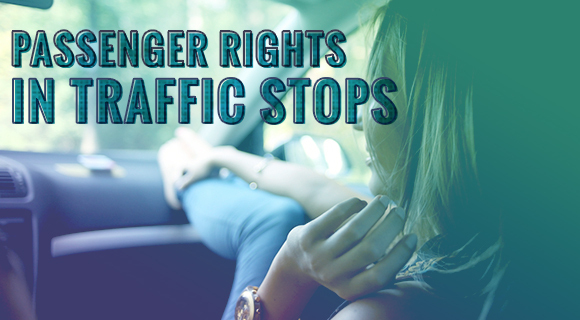Traffic-stop confrontations between police and motorists have made the news on a regular basis in recent years, leading to serious discussions about drivers' rights. Many experts advise drivers to comply first and complain later, but when it comes to passengers, what's expected? Do those riding in a vehicle that gets pulled over face the same requirements as those behind the wheel?
Responsibility and Staying On-Site
As with any law enforcement encounter, it's important to know what's legally expected of you. If you're a passenger in a vehicle driven by someone
suspected of a traffic infraction, you cannot be held accountable for the driver's actions.
Passengers are also generally free to leave unless officers cite suspicious behavior, requiring individuals to remain on-site. If this occurs, a passenger can still refuse search requests and exercise Fifth Amendment rights by not answering any questions without an attorney present.
Identification Please
When driving, individuals must carry a form of valid identification and show it to an officer if requested during a traffic stop. The laws applying
to passengers, however, fall into a grayer area. In general, passengers are not legally obligated to show identification unless law enforcement
suspects criminal activity.
Some cases brought before the U.S. Supreme Court and the U.S. Courts of Appeals have addressed the passenger identification issue, establishing that officers need "reasonable suspicion" to ask for identification from passengers. As a result, many states and jurisdictions now have stop-and-identify laws that mandate showing a valid ID if a police officer suspects that a crime has been committed.




Comments
Post has no comments.